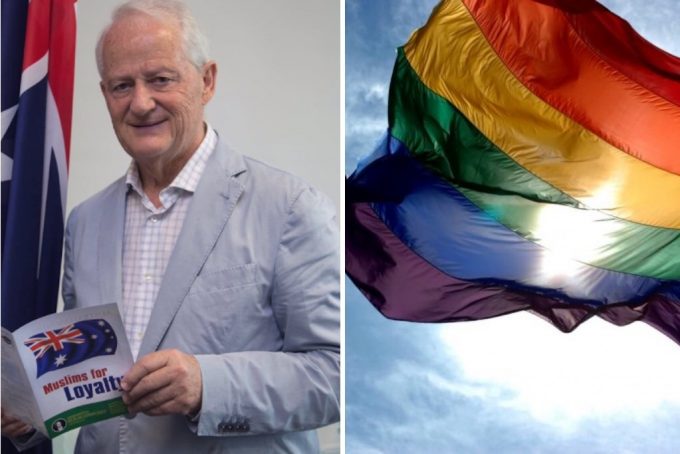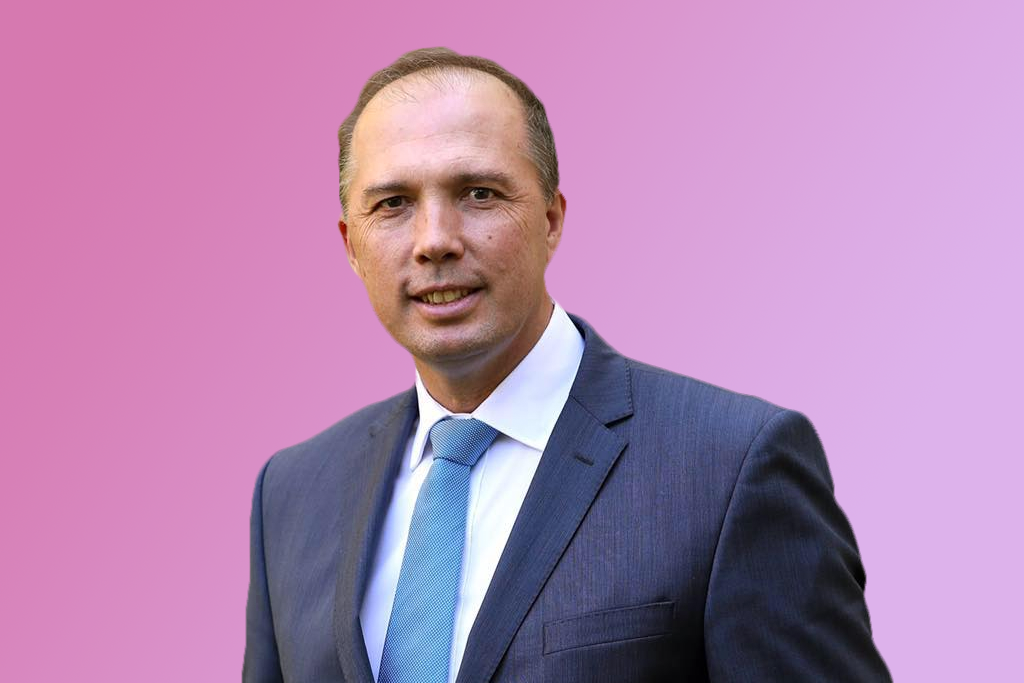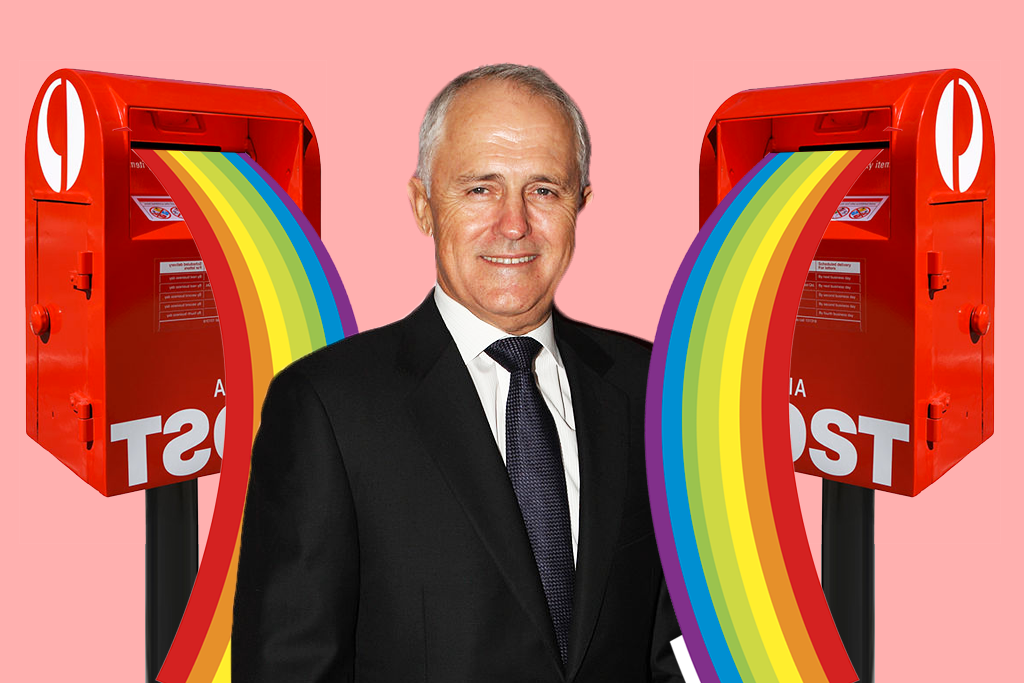We Can Have Religious Freedom Without The Right To Discriminate
Businesses are not religions.

Andrew Bragg led the Liberals and Nationals for Yes campaign during the postal survey on marriage equality. Here, he aims to dispel some of the myths surrounding “religious freedom” in Australia.
—
The Ruddock Review into religious freedom has sent its report to the government. Freedom of conscious, thought and religion is the bedrock of a free society. Anyone who’s read George Orwell’s 1984 knows as much. The review should tell us whether we can exercise our conscious freely under Australia law.
But this review must not pave the way for Australia to reintroduce discrimination or transfer power to unelected judges through a bill of rights. If the review seriously entertains either of these proposals, it risks missing the main objective — to ensure religious freedom of institutions and individuals.
Churches, worried their freedoms could be encroached, asked the government for the review during the heat of the same-sex marriage debate in 2017.
Why This Review Matters
Churches continue to play a critical role in Australian life. For instance, 600,000 children (20 per cent of all kids) are currently enrolled in Catholic schools. The Ruddock review is an opportunity to determine whether universal freedom of religion exists in Australia, which is extremely important in our liberal democracy.
The big questions for the review include whether to establish a religious protection of freedom in state constitutions, determine if the wording in Section 116 of the Constitution (“The Commonwealth shall not make any law for establishing any religion, or for imposing any religious observance, or for prohibiting the free exercise of any religion”) is broad enough and whether anti-discrimination laws maintain religious freedom.
Now to the two things the review should not do.
First, the freedom of religious institutions to teach, manage and serve a religious view of marriage is not the same thing as whether bakers and butchers should serve a gay wedding.
Churches and religious institutions must remain sovereign and their choices to marry or not marry two people must always be protected by law.
But the idea that a commercial business could say no to serving a cake or a tailoring a suit or driving a taxi to a gay wedding is wrong. It would wind the clock back decades on anti discrimination laws.
With the Ruddock review on religious freedoms being finalised today, its important that any recommendations facilitate harmony and healing, and don’t stoke division – especially after such a bruising year for the LGBTI community. Australia voted for equality not discrimination.
— Alex Greenwich MP (@AlexGreenwich) May 17, 2018
Yet the Australian Christian Lobby says: “Where a business is a small business operated by individuals with a genuinely held conscientious or religious belief about marriage and/or family, or where the business is a large business with governing principles that express a genuinely held conscientious or religious view about marriage and/or family, such businesses must be free to operate in accordance with those beliefs.”
This suggests the Sex Discrimination Act ban on refusing to supply goods and services because of gender identity should be overturned.
If we allowed businesses such as cab drivers, bakers and tailors to select on a whim who they serve based on sexuality, where we do stop? Do we allow discrimination for race or age?
This is the thin edge of the wedge and must be rejected. Businesses are not religious institutions.
One of the strongest arguments for same-sex marriage was equal rights under the law.
The Postal Survey Was About Equality, Not Discrimination
Prior to same-sex marriage, de facto rules in each state and territory and nationally did not deliver the rights marriage automatically bestow upon a couple. Equally, next-of-kin arrangements were not equivalent. It was much harder, or impossible, to prove a partner in a same-sex relationship could have been the legal next of kin.
Having legislated the same marriage rights for all, Australia must not replace discrimination with discrimination. Sexual profiling in shops could potentially become racial profiling. Multiethnic Australia has long rejected profiling in our cohesive, diverse nation.
Second, a bill of rights has been proposed by constitutional scholars and Christian groups as a solution. This has rightly been pilloried by conservatives for decades as a massive transfer of power and responsibility to the courts from the legislature.
As John Howard said in 2009: “A bill of rights would further diminish the prestige of Parliament, it would politicise the appointment of judges, it would increase the volume of litigation and it would not increase the rights and protections now available to Australian citizens.”
”A charter or bill of rights would represent the final triumph of elitism in Australian politics — the notion that typical citizens, elected by ordinary Australians, cannot be trusted to resolve great issues of public policy.”
Creating a bill of rights would effectively say the Parliament has given up on rights.
Courts would make judgements on all legal rights and freedom affecting our whole citizenry – well beyond freedom of religion.
By ceding responsibility to the courts, we would undermine Australian Parliamentary democracy forever. We would end up picking judges on their politics rather than their skills.
The review should therefore set aside proposals to introduce a bill of rights.
Equally, Ruddock should reject any form of commercial discrimination as the panel considers the issues raised by churches and other religious groups to which we should all bring an open mind.
Freedom without discrimination please.
—
Andrew Bragg led the 2017 Liberals and Nationals for Yes campaign. He’s on Twitter: @ajamesbragg.

